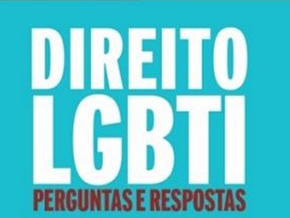Is there a difference between civil union and gay marriage? Can homosexuals be disinherited because of their sexual orientation? Can a same-sex couple adopt children? What is socio-affective motherhood? Can transvestites change their name?
+Love without prejudice – Book talks about adoption by a gay couple and their achievements!
The lawyer Ivone Zeger has looked into these issues over the last five years and, as a result, has written the only work of its kind in the country that clarifies, in simple and objective language, the most common doubts regarding rights of lesbian, gay, bisexual, transgender and intersex individuals.
Who has never experienced the embarrassment of being passed over in a job selection process because of their sexual orientation, having doubts about which bathroom to use, as is the case with transgender, or being approached by a homophobic group, you will not have the exact idea of what it means to have laws that can guarantee your moral and physical integrity.
The existence of these rights, however, is not enough. It is necessary and urgent to expand knowledge for those who find themselves hampered in these everyday situations and for those who need to learn to recognize and respect the laws. It was with this situation in mind that lawyer Ivone Zeger, one of the greatest Brazilian specialists in Family Law, wrote the book LGBTI Law – Questions and Answers (272 pages, R$ 78,10), launch of Mescla Editorial.
Starting from the most common questions asked by customers and members of the LGBTI community, Ivone addresses hundreds of topics – many of them still unknown to the majority of the population and even her target audience. There is technical information on marriage, stable union, usufruct, intersex, adoption, artificial insemination, dissolution of stable union, divorce, child custody, will, sharing of assets, inheritance – in short, all topics belonging to Family Law.
Based on her extensive experience in the area, Ivone answers questions based on specific cases in 16 chapters, without resorting to “legalese”. The concepts expressed do not contain value judgments and are in no way based on personal opinions. To prepare the answers, she used the Federal Constitution and the Civil Code of 2002, based on decisions from the ministers of the Federal Supreme Court (STF), the judges of the Superior Court of Justice (STJ), the National Council of Justice (CNJ ) and what was fed into jurisprudence and in hearings whose cases were later publicized by the media, in addition to resolutions, such as those of the Federal Council of Medicine (CFM).
“Prejudice and discrimination are complex themes that arise from historical contexts and are perpetuated”, assesses the author. In Brazil, according to her, there is a tendency to consider that prejudice is less and, due to the repeated immigration of people to the country, ethnicities and different ways of life coexist in a harmonious society. For the author, it is an optimistic vision, but, unfortunately, not entirely true. “Homophobia, for example, is undeniable and is spreading more and more, as LGBTI groups gain more visibility and rights, and their victims are in all social strata”, she adds.
The reflection of these discriminations and the legal provisions to combat them are present in the book. Among them, the Yogyakarta Principles, which have been referencing the application of international human rights law, in the context of the fight against stigma and discrimination against LGBTI groups. The author shows that domestic violence also ends up echoing in same-sex relationships. This is when the historic struggle for the conception and formulation of the Maria da Penha Law to curb domestic and family violence against women is remembered and exalted. “This has been the law applied to curb domestic violence against gays, lesbians and transvestites”, reveals Ivone.
Another area in which homophobia is present is in the professional world, hindering careers that had everything needed to be successful. Both in the business environment and in the job market, barriers have been established for centuries. For the author, business culture in Brazil is not prepared for the actions of homosexual people who do not wish to disguise, pretend or lie, no matter how discreet they may be. In this aspect, as in other areas, transvestites and transsexuals are even more harmed.
“Transforming this heteronormative culture is already a concern for many companies, but the reality is clear: this transformation will take time”, says the lawyer.
Service:
Title: LGBTI Law – Questions and answers
Author: Ivone Zeger
Publisher: Mescla Editorial
Price: R$ 78,10 (Ebook: R$ 49,70)
Pages: 272 (17 x 24 cm)
ISBN: 978-85-88641-42-6
Customer service: (11) 3865-9890



